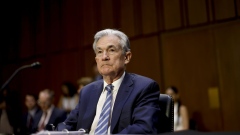Jun 25, 2020
Banning foreign workers won't bring America back
, Bloomberg News

President Trump has announced that tens of thousands of foreign workers will be banned from entering the U.S. through the end of the year. It will take longer than that to repair the damage.
The new order cancels a range of non-immigrant visas for seasonal workers, technology-industry employees, corporate executives and cultural exchange visitors. Over the next six months, at least 167,000 workers and their families will be blocked from entering the country, according to the nonpartisan Migration Policy Institute.
The policy also extends a two-month-old ban on the issuance of green cards for foreign nationals living outside the U.S., affecting tens of thousands of family members of legal permanent residents.
With unemployment at its highest level since the Great Depression, Trump argues that foreign workers pose “an unusual threat to the employment of American workers.” Yet there’s little evidence that immigrants displace native-born workers, especially in specialized fields where labor shortages were high before the Covid-19 recession.
Suspending the H-1B visa program, which admits 85,000 professionals a year, mostly in the technology sector, will harm innovation, reduce entrepreneurship and depress job growth. Because these immigrants boost companies’ productivity and add to overall consumer demand, each H-1B visa holder is responsible for creating nearly two additional U.S. jobs.
Rather than wait for the ban to be lifted, companies that rely on foreign tech talent might move their operations elsewhere.
Foreign graduates of U.S. colleges and universities are often hired on H-1B visas, so the ban will make it harder for schools to attract and retain international students — depriving them of revenue as many are struggling to survive.
Meanwhile, Trump’s suspension of another visa category, the L-1, will discourage investment in the U.S. by multinational companies based overseas, because they’ll be unable to relocate senior managers.
Immigration policies should aim to promote national prosperity and protect the interests of U.S. workers.
With that in mind, some adjustments to the H-1B program would make sense — such as awarding visas to companies paying foreign workers high salaries, thus limiting their incentive to undercut U.S. workers’ wages. But any such changes should be part of a comprehensive reform to prioritize skills and increase immigration overall.
The president’s order does the opposite — choking the pipeline of skilled workers who would spur innovation and growth. Recovering from the current crisis was already going to be slow and painful. Shutting America’s doors to foreign talent only make things worse.
Editorials are written by the Bloomberg Opinion editorial board.




